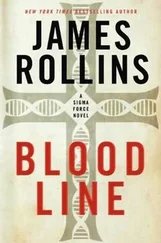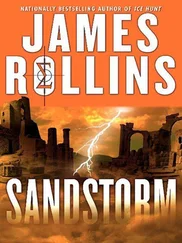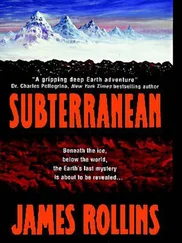But was it enough?
The Cessna was now a speck behind them, but she noted it swinging around.
Jenny made a course correction, aiming away from the cliff face and toward a wide valley that sloped out of the mountain range toward the lower foothills. It was the Alatna Valley. They were soon over the river that drained south out of the mountains. She continued straight ahead, leaving the Alatna River behind.
“Where are we going?” Matt asked, craning back. “We’re heading west. I thought you wanted to head to Prudhoe Bay.”
“I do.”
“Then why aren’t we heading straight north up the Alatna and over the Antigun Pass?” He pointed back to the river. “It’s the safest way through the mountains.”
“We’d never make it that far. They’d catch up with us again. After we clear the Antigun Pass, there is nothing beyond that but the open tundra. We’d be picked off.”
“But—?”
She glared over at him. “Do you want to fly this thing?”
He held up a hand. “No, babe. This is all your game.”
Jenny gripped the plane’s wheel tighter. Babe? She had to fight the urge to elbow him in his face. Matt knew how to fly. She had taught him herself, but he was no risk taker. In some ways, he was too cautious a flier to ever truly excel. One had sometimes to give oneself over to the wind, to simply trust one’s craft and the power of the slipstream. Matt never could do that. Instead he always fought and tried to control every aspect of flight, like he was trying to break a horse.
“Why don’t you make yourself useful,” she said, “and try the radio. We need to let someone know what’s going on up here.”
Matt nodded and pulled on a set of earphones with a microphone attached. He switched on SATCOM to bounce their signal off a polar-orbiting communication satellite. It was the only way to communicate in the mountains around here. “I’m just getting static.”
Her frown deepened. “Solar storms kicking in again. Switch to radio. Channel eleven. Try to reach Bettles. Someone may still receive us. Signals cut in and out all the time.”
He did as instructed. His words were terse, giving their location and direction. Once done, he repeated it again. There didn’t seem to be any response.
“Where are we headed?” Craig asked behind her, his voice shaky. He stared out the cracked side window at the passing meadows and forests far below. Jenny could only imagine his terror. He had already crashed once this week.
“Do you know the area?” she answered, drawing his attention to her.
He shook his head.
“If we mean to lose our tail, then we’re going to need some cover. We’re too open here. Too exposed.”
Matt overheard her. He glanced to her, then at her heading. Understanding suddenly dawned in his face. “You can’t be serious?”
Her father spoke one word, knowing her goal, too. “Arrigetch.”
“Dear God,” Matt exhaled, cinching his seat belt tighter. “You do have parachutes somewhere in here, right?”
3:17 P.M.
POLAR ICE CAP
Amanda Reynolds flew across the ice. There was no other term for this mode of transportation. Though it was properly called ice sailing, such a description was a far cry from the experience itself.
Winds filled the twelve-foot sail, spreading in a bright blue billow before her. With her body crouched, but comfortable, in the fiberglass molded seat, her feet worked the two floor pedals. She kept one hand on the jib line’s crank. Under her, the boat raced across the ice at breathtaking speeds, slicing through the frozen waves of snow.
Despite her speed, she glanced around her. There was no place more starkly empty and barren. It was a frozen desert, one even more formidable and inhospitable than the Sahara. Yet at the same time, there was a distinct spiritual beauty to the place: the continual winds, the dance of blowing snow, the subtle shades of ice. Even the jagged peaks of pressure ridges were sculptures of force given form.
She worked the pedals to arc around one of these ridges with a skill honed from a decade of practice. From a long line of sailors and shipbuilders, she was in her element here. Far though she was from the family-owned shop in Port Richardson, south of San Francisco.
With her brother’s help, she had built the iceboat she rode now. Its sixteen-foot hull had been constructed from handpicked Sitka spruce. Its runners were a titanium alloy. She had clocked the boat at sixty miles per hour on Lake Ottachi in Canada, but she had been limited by a run of only a thousand feet.
She stared out at the endless expanse around her and smiled.
One of these days…
But for now, she settled into her seat and appreciated this time alone, away from the cramped and humid station. Overhead, the sun was sharp and the day still subzero. Though the flow of winds continually chafed against her, she was oblivious to the cold. She wore a form-hugging thermal dry suit and hood, used by divers in the Arctic waters. Her entire face was covered by a custom-molded polypropylene mask, the eyeholes fitted with polarized lenses. Only as she inhaled was she reminded of the Arctic freeze, but even that could be warmed by breathing through a battery-generated air heater that hung from the suit. But she preferred to taste the air.
And to savor the experience.
Out here, she had no disability. She did not need to hear the wind or the knife-sharp hiss of her runners over the ice. She sensed the vibrations through the wood, felt the wind’s press, saw the dance of snow over the ice’s surface. The world sang to her out here.
She could almost forget the car accident. A drunk driver…a basal skull fracture…and the world went silent and more empty . Since then, she had struggled against pity, both from others and her own heart. But it was hard. A full decade had passed since the accident, and she was beginning to lose her ability to speak clearly. She read the confusion in others’ eyes that required her to repeat herself or to sign. Frustrated, she had channeled her energies into her studies and research. A part of her knew she was isolating herself. But where was the distinction between isolation and independence?
After the loss of her mother, her father had hovered over her, kept her close, seldom out of his sight. And she suspected it wasn’t all because of her deafness. He feared simply losing her. Concern turned into smothering. Her struggle for freedom wasn’t so much to prove that she could live as a deaf woman in the larger world, but that she could simply live independent. Period.
Then Greg…Captain Perry…came into her life. His smiles, the clear lack of pity, his bumbling attempts at flirtation, all had worn her down. Now they were at the threshold of a deeper relationship, and she was not sure how she felt about it. Her mother had been a captain’s wife. It was not a world of isolation or independence. She knew this. It was parties, formal naval dinners, weekly social events with other wives. But did she want that life?
She shook her head, pushing such thoughts aside for now. There was no need to make any decisions right now. Who knew where any of this would lead?
Frowning, she manipulated her pedals to glide the boat in a gentle swing toward her destination two miles ahead: the buried Russian ice station. Earlier in the morning, the head of the biology team, Dr. Henry Ogden, had radioed her, claiming some discovery at the station that had led to a clash with the geology team. He insisted she come out and settle matters.
As head of Omega, Amanda was often called in to arbitrate interdisciplinary disputes. At times, it was like wrangling with a bunch of spoiled children. Though she could have easily sidestepped such a demand on her time, it was a perfect excuse for her to escape the drift station for a day.
Читать дальше










